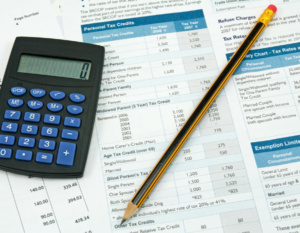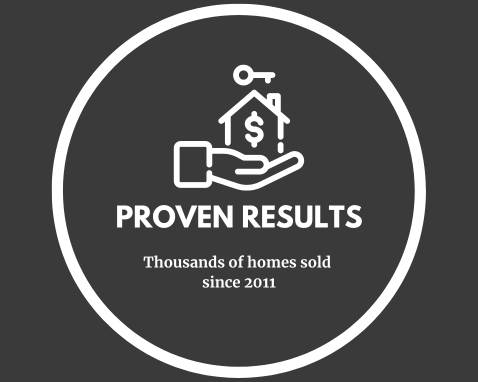7 Important Tax Benefits from Owning a Home…

If you bought your first home this year, then good news! Owning a home affords you many tax breaks that were not available to you as a renter. For those who have been reaping the tax benefits of home ownership for years, it’s still a good idea to educate yourself on changes to tax codes that may help fatten your annual return, or just brush-up on existing tax breaks that you may have missed. Here are the 7 most common tax breaks that every homeowner should know about.
1. Home Mortgage Interest Deduction
This is one of the biggest tax breaks for homeowners and has historically used to encourage Americans to buy homes. Currently, homeowners who itemize their taxes can deduct the value of their interest payments on up to $1 million of mortgage debt. In order to be eligible, you must itemize on Schedule A of your tax return. You should receive a Form 1098 shortly after the tax year ends from your loan provider, which will show the amount of interest you paid for the year. (Side Note: The US government will pay 25% of the interest on your behalf if you’re a part of the 25% tax bracket)
2. Mortgage Interest Credit
The mortgage interest credit was designed to help make home ownership for low-income individuals more affordable. In order to get this credit, you must contact the appropriate government agency about acquiring a Mortgage Credit Certificate (MCC) before getting a mortgage. If you itemize your deductions, you must reduce your home mortgage interest deduction by the amount of the mortgage interest credit you claim. HMG is happy to answer any questions about this or put you in touch with one of our partners who can also help.
3. Mortgage Points Deduction
A home mortgage point is equal to one percent of the amount of your loan. So, if you have a $100,000 home loan, one point is the equivalent of $1,000. The home mortgage industry uses two types of points: origination points and discount points. Origination points typically go directly to for the loan originator, while discount points are a type of prepaid interest that are often fully deductible. There are many requirements which must be met in order to deduct points. You can deduct the points in full in the year you pay them if you meet the following requirements:
- Your primary residence secures your loan
- Paying points is an established business practice in the area where the loan was made.
- The points paid weren’t more than the amount generally charged in that area.
- You use the cash method of accounting. This means you report income in the year you receive it and deduct expenses in the year you pay them.
- The points paid weren’t for items that are usually listed separately on the settlement sheet such as appraisal fees, inspection fees, title fees, attorney fees, and property taxes.
- The funds you provided at or before closing, including any points the seller paid, were at least as much as the points charged. You can’t have borrowed the funds from your lender or mortgage broker in order to pay the points.
- You use your loan to buy or build your primary residence.
- The points were computed as a percentage of the principal amount of the mortgage.
- The amount is clearly stated on your settlement/closing statement.
For more on this topic, visit the IRS Tax Topics Page (504).
4. Property Tax Deduction
The property tax deduction reduces your taxable income. Your tax benefit varies depending on your taxable income, the amount of your property taxes and your filing status. You may be able to deduct up to 100% of your property taxes up to $10,000.
5. Home Energy Tax Credits
A tax credit reduces the amount of tax owed, so it’s different from a tax deduction, rebate, or refund. Energy.gov points out that the clock ran out in 2016 on several federal tax credits for homeowners who made energy upgrades during the year. However, solar credits are good through 2019 and then are reduced each year through the end of 2021. You can claim these credits by filing Form 5695 with your tax return.
The Residential Energy Efficiency Property Credit: Equipment that qualifies includes solar, wind, and geothermal in your principal residence and a second home. But fuel-cell equipment qualifies only if installed in your principal residence. According to TurboTax, the credit is equal to 30% of the cost, including installation. There is no upper limit on the amount of the credit for solar, wind and geothermal equipment, but the maximum tax credit for fuel cells is $500 for each half-kilowatt of power capacity, or $1000 for each kilowatt. For example, a fuel cell with a 5 kW capacity would qualify for 5 x $1000 = $5000 tax credit.
Non-business Energy Property Credit: Claim a tax credit for 10% of the cost of qualified energy efficiency improvements and 100% of residential energy property costs. Limits apply.
6. Home Improvement Tax Breaks
Those hammer and nails will finally pay off, because improvements made to your home can lend themselves to tax breaks! Just be sure you keep the receipts and track the cost of major improvements so you can prove the costs you claim. Using a home equity loan or other loan secured by your home to finance improvements? That loan will qualify for the same mortgage interest deductions as your primary mortgage. Another reason to track capital improvements is for resale value. When and if your home sells for more than you paid for it, that extra money could be taxable income depending on various factors. Home improvements can help lower taxes by increasing your tax basis.
7. Tax-Free IRA Withdrawals
Did you know that IRA withdrawal penalties don’t apply to first-time homeowners? They define a first-time homeowner as someone who has not owned a home within the span of 2 years. First-time buyers are able to withdraw up to $10,000 ($20,000 for a married couple) from an IRA to purchase or build a home. (Side Note: The $10,000 limit is for a lifetime. Also, the government can still tax this money according to your tax bracket, so even though there is no penalty it should still be a last resort.)
Thinking about buying or selling a home in 2017? Our expert staff is always available to answer questions you may have about homes in the Knoxville, TN area. Feel free to contact us directly or start your home search with us here!




Leave a Reply